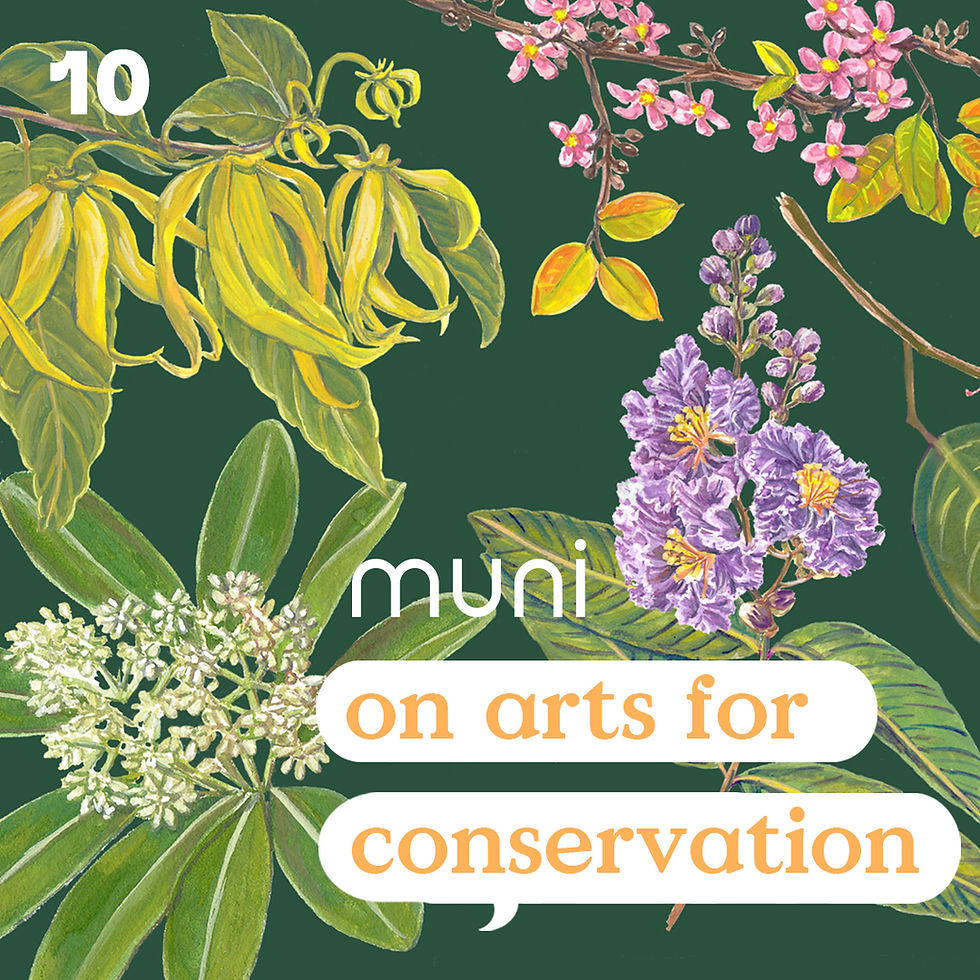The Psychology of Creating A Waste-Free World
- Team Muni

- Jun 1, 2017
- 2 min read
#MUNIonThis: Not everyone has a fiery zeal to protect the planet, and environmentalists can often be met with strange stares by their peers.
Many people can’t quite imagine having to bring around reusable receptacles and containers whenever they step out of the house. They can’t imagine never buy new clothes or gadgets again, etc. And now, they just don’t have enough time to DIY everything or enough money to bulk buy everything.
Some planet crusaders can take things to an extreme that other people find hard relating to. So how can we make this matter to people so that they care and act accordingly?
An approach to environmentalism doesn’t involve scare tactics or shaming (not too much, at least). Lasting change behavior change is a process, and it may not always follow the same linear way for everyone. One critical component? Empathy.
Tapping into Empathy
It is said that “we protect what we love,” so essential to the equation is having a better appreciation for our natural environment in order for us to protect it.
We protect what we love, and we love what we appreciate, but we can only appreciate something if we know why it is special, what value it has in the world and in our lives — and how, at the end of it all, we are all connected. This is where marine biologists, conservationists, geologists, and other scholars of natural sciences play a huge role in putting the information out there.
Once the information is out there, it needs to retold in a more digestible, relatable, compelling kind of way. This where the storytellers – writers, photographers, filmmakers, and your “everyday citizen journalist” (provided they don’t spread fake news) – play a critical role.
This albatross’ stomach was found to be filled with plastic waste it unknowingly ingested as food. Many birds are dying like this because their system can’t digest what they put in it.
Warning: very graphic video below on another innocent marine animal victimized by plastic waste
[youtube https://www.youtube.com/watch?v=d2J2qdOrW44&w=560&h=315]
I also recommend viewing A Plastic Ocean, which is currently available on Netflix or on PlasticOceans.org.
[youtube https://www.youtube.com/watch?v=6zrn4-FfbXw&w=560&h=315]
As humans, we pride ourselves in being the smarter inhabitants of this planet, capable of innovation and dexterous use of our opposable thumbs (e.g. for hitting a backhand with your pingpong racket). And yet, we’ve also used our brains to both unwittingly destroy the planet (before we realized what damage we were doing), and also to knowingly deny climate change and make “scientific cases” in defense of maintaining the status quo of irresponsible production, waste management and so on.
But I also believe that these same brains, combined with empathy and collective action, can take us out of the mess we’ve put ourselves in.
You can also join the conversation at a MUNI Meetup on Zero Waste Living happening on July 1, 3-6PM at Roots Katipunan. Find out more and register to secure your slot here.
ABOUT THE AUTHOR Jen Horn is the founder of MUNI, a community for mindful living. Through MUNI, she encourages people to think critically – to ask questions about how they shop, eat and travel, to explore more socially and environmentally mindful ways of living and working.
She is a sustainability advocate and community engagement consultant. She enjoys learning about psychology and the environment. Follow her at @nomadmanager.







Comments